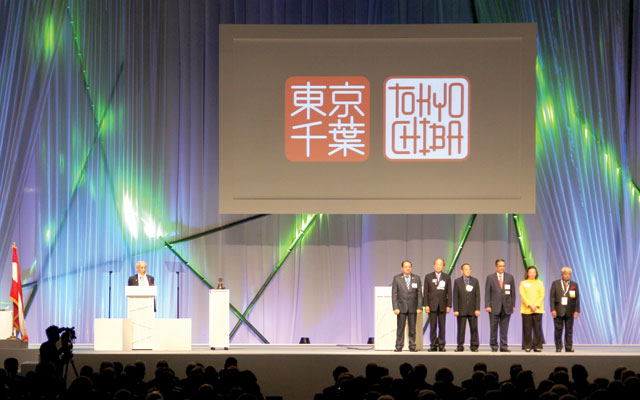Chiba Convention Bureau steps in to help resolve communication challenges between the organiser and local partners, and leverages the event for destination promotion.
The gathering of the world’s third largest volunteer social service organisation in Chiba, Japan this July was especially meaningful to both the organiser and the destination.
The 99th Annual Kiwanis International Convention took place during the 50th anniversary of Kiwanis Asia Pacific and the 50th anniversary of Kiwanis Club of Tokyo, the first Kiwanis Club to be established in Asia in 1964.
 The five-day convention gathered 2,000 international participants from 40 countries.
The five-day convention gathered 2,000 international participants from 40 countries.
Young volunteers were welcomed to help with the event, in line with the organisation’s motto, Serving the children of the world. Chiba Convention Bureau helped facilitated this aspect by connecting Kiwanis International with international exchange volunteers and students from several high schools and colleges in the city. These young volunteers acted as interpreters and guides to convention guests, and even performed in Japanese cultural programmes.
For Chiba, glory came in the form of its ability to beat fellow convention cities Sydney, Hong Kong, Jeju and Singapore in the bid for the hosting rights to the 99th Annual Kiwanis International Convention.
According to Yumiko Iwata, deputy director, conventions at Chiba Convention Bureau, Chiba was chosen because of its good international air links through Narita and Haneda airports, the two major gateways to Japan, as well as the availability of convenient public transportation to Tokyo, some 30 minutes away.
Chiba also won the hearts of decision-makers at Kiwanis International with its convenient infrastructure. The event venue, Makuhari Messe, is surrounded by 2,800 hotel rooms within walking distance.
Iwata said: “Sarah Hayden, the meeting planner at Kiwanis International, told us this was the first time that they did not need to shuttle people between the hotels and the convention centre.”
Hosting the event also presented an invaluable opportunity for Chiba to showcase its scenery, shopping options, restaurants and attractions.
The execution of the convention was not without challenges, though. Communications between the Indianapolis-based meeting planner and Japanese partners such as subcontractors, volunteer groups and local authorities were quite challenging due to language barriers.
Iwata explained: “The subcontractors and local authorities tried to communicate directly with the meeting planner but often it was not smooth because of language (differences) and replies were not timely.”
To resolve this hitch, Chiba Convention Bureau organised weekly conferences over Skype in its office, allowing Japanese suppliers and volunteers to interact with the meeting planner.
“Questions were kept simple and I, myself, helped to facilitate communications,” said Iwata.
The bureau also kept its Japanese counterparts updated with the latest information pertaining to security matters during the convention.
Commenting on her experience working with the locals in Chiba, Hayden said: “The people here have been outstanding – very helpful and friendly – and are just wonderful to work with.”
Iwata added that “the wealth of experience gained from hosting this convention will come in useful when Chiba welcomes guests from abroad (during) the Olympic and Paralympic games in Tokyo in 2020”.











